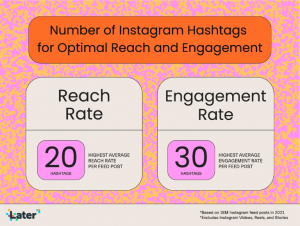Would you drive with no idea of the size of the vehicle you are maneuvering or what the destination is? Optimizing a website is going to be such an experience if you take up SEO assignments without knowing what you are up to. For one, performing SEO for a large website with half a million pages is not the same as an SEO for a local plumber’s website. Also, being the first one on the job is different from optimizing a site that has already been worked on by another SEO. Understanding the exact objectives of the customer, along with knowing the background of the website is extremely critical to doing a good job. Here are some questions you should ask your client before signing a contract to undertake SEO.
1. How would you describe your business?
This is the first question you ask your client. Yes, it doesn’t take much time to figure out that your client is an attorney or a florist. But the objective of this question is to know everything about what they do – is your client an online player? Do they have a brick and mortar store? What locations do they target? How long have they been in business? You will need answers to all these questions – but asking your client to describe their business helps you get answers to all these different questions.
2. How would you classify your products and services?
So your client is in the floor care business – how would they further classify their offerings? What are the different products and services that they offer? Sometimes, there is a very fine line between their various offerings – clients provide various grades of services for customers with different budgets. Try to understand the different ways the business may be classified based on the different products and services on offer along with the various price points. As an SEO consultant, this information will give you idea of how to organize your website content, along with the keywords that you should target.
3. How do you differentiate your business from competition?
Every business needs a unique selling proposition to carve a niche and thus differentiate themselves from competition. From an SEO’s perspective, the answer to this question will help you see if there is a demand for this USP from customers as much as there is demand for the alternate propositions. For instance, let us assume your client is in the plumbing business and their USP is their use of German tubes – is there a market to this? As an SEO, you can check the Google search keywords data from the client’s location to see if there is a demand for such a service. You may also help identify alternate USPs based on their price point, turnaround time, etc. to craft the right differentiation strategy for your client’s online business.
4. What is the average customer acquisition cost?
Knowing how much your client spends to acquire a customer will give you an idea of the initial targets you should aim for. For instance, if your client spends $ 1000 a month on Adwords, you can get an idea of how high up the search engine you should get in order to break even. This will also help you negotiate with your client effectively.
5. What is the average lifetime value of your customer?
Often times, the lifetime value of a customer differs with the marketing channel used to convert them. A customer acquired via a promotional offer may sometimes cease the partnership when the prices go up. On the other hand, a customer acquired through referrals may continue their relationship with you for a longer period. Knowing these various lifetime values along with the average figure will help you tweak your SEO strategy. Since SEO is an inbound marketing effort, a relatively lower lifetime value is likely an indication that you are targeting the wrong kind of customers.
6. Have you done SEO before?
This is an extremely important question that will help you audit the website better. A website that has never been optimized before is likely to have very few spammy backlinks and the content is likely to be pretty generic with no focus. On the other hand, a website that has already been through the hands of an SEO may likely contain backlinks that are harming, rather than helping, the website’s ranks. An answer to this question will ensure that you do not miss out on any critical steps in the SEO audit process. This will subsequently help you chart out your SEO activities and thus put a cost to the effort required.
7. Did you hire an agency or do it yourself?
Assuming that the answer to the earlier question was a yes, ask the client about the team in charge of optimizing the website. How does this matter? Well, knowing who worked on the site will give you an idea of things that could have potentially gone wrong. In my experience, business owners that did their own SEO are more likely to have inadvertently indulged in blackhat techniques compared to those that hired an external agency. Also, knowing the agency that did the SEO, you could possibly gain better insights into their modus operandi (quite a few SEO agencies offer ‘packages’ at different price points to customers. Knowing the package the client signed up for could tell you about things that could potentially affect the client’s website).
8. What link building strategies did you use?
A backlink analysis of the website tells you everything you need to know about the kind of links that the website has received. But it is important to know how they were acquired – was it through a sustained PR campaign? Or were bloggers paid for writing about the website? Also, if the client had subscribed to one of the SEO packages, then it is very likely that the website would have seen a pretty unnatural link frequency – so getting to know about the link building strategy straight from the horse’s mouth can tell you if the website has violated any Google guidelines and if they may see a penalty down the line.
9. Has your site ever been penalized by Google?
Assuming you do not have access to your client’s analytics, details of previous penalties (and the timeline of such events) will help you focus your website audit on the right parameters. Alternately, you can simply ask your client for access to their Google Analytics dashboard and make these inferences yourself.
10. What is the objective of this SEO engagement?
A lot of business owners are not aware of the fact that SEO goes beyond just ranking number one on Google search for your keywords. Understandably so, a lot of them find agencies that guarantee results more trustworthy than those that do not promise a number one position. Asking this question will give you an opportunity to understand the business owners’ perspective on the project as well as engage with them about the right way to do SEO.

11. What do you want us to do?
This is a continuation of the previous question where we got to know the objective of the engagement from the client’s perspective. In some cases, business owners expect SEO agencies to deliver on a fixed number of directory submissions, guest blogs and backlinks every month. If this is not what you provide your clients, it is the perfect opportunity to educate your client on why you do not offer such a service and how such things can be risky.
12. Is your web development firm in-house or outsourced?
Coming up with SEO recommendations is only half the battle. Getting them implemented on priority is something that a lot of SEO agencies struggle with. This is because businesses often have their own list of pending web tasks and won’t bother with additional SEO related tasks. If the client has their own in-house web-dev team, which you think may be a bottleneck, you may discuss this issue before-hand. Also, this gives you an opportunity to cross-sell your company’s web development services (if you have one) as well.
13. What is the tentative turnaround time for our on-site recommendations?
This is an extension of the previous question and is necessary to be explicitly discussed for the sake of seamless implementation of SEO recommendations. In some cases, it may be necessary to include this information in the contract agreement itself. For instance, if the client offers to include a bonus component for search rank improvements, it is important to make a note of the turnaround times as well since this has a direct bearing on how soon your SEO strategies show results.
14. Who is the POC in your company?
Before signing up a client, most of the engagement happens between the business development person from your SEO agency and the marketing head (or business owner) from the client’s side. However, things change once the contract is signed. The BDM may handover the responsibilities to the SEO manager while you may need to engage a lot with a marketing executive or the web developer from the client’s side for implementation. It is a good idea to finalize the point of contact from either side before the partnership is signed so as to know the roles and responsibilities from either side.
15. What areas will you provide support on?
It is difficult to offer a price estimate unless you know all things that are expected of you. For instance, it is common for small business owners to often request SEO agencies to implement the changes themselves on the website. Many times this part of the engagement is never discussed before signing the contract. Also, some businesses have their own in-house writers who contribute to the company blog. In such cases, you do not have to include content writing as part of your cost estimates. Having said that, do assess the quality of the client’s in-house writers since their grasp on the language and the content they provide has a direct bearing on your SEO goals. If you insist on having your own writers, discuss this with the client well in advance.
16. Can we mention the payment method and cycle in the contract?
If the contract is drafted from your side, it is a good idea to explicitly mention the billing cycle and possibly introduce penalties for late payments. On the other hand, if the contract is drafted by the business, request the payment terms to be explicitly mentioned in the agreement. As noted already in this article, a lot of business owners are wary of paying SEO consultants until they see positive results. Mentioning the payment terms in the contract will help protect your interests in cases where search engine optimization techniques take time to deliver results.
17. How much money do you spend on online advertising?
Knowing the advertising budget of a client helps you in calculating the prevalent customer acquisition cost as noted earlier. In addition to this, this can also help you build a case for allocating a larger SEO budget, if necessary. Let us assume you have a local small business client who pays you $ 400 a month for the SEO assignment. This budget does not give you much leeway to work on high value link building efforts like publishing a research report or organizing a giveaway. However, if you know that the business also spends $ 1000 a month on Adwords, you may convince them to spend a part of this budget on SEO for better long term gains.

18. How do you manage your social media?
Every business, big or small, at least have a Facebook page these days. However, social media management goes much beyond just posting stuff about your company and industry on your Facebook wall. With social signals becoming a crucial part of the search ranking process of late, what a business does on social media impacts their search ranking to a significant extent. Depending on the client’s answers, you may either choose to coordinate with their social media management team for link building efforts (for instance, during giveaways), or offer to take up social media as an additional responsibility.
19. Do you have a PR team?
Business owners often do not see the connect between PR and off-site SEO. Organic and sustained link building is possible through PR and if the business already has a PR team (in-house or outsourced), it makes sense to coordinate with them to maximize the PR reach and link building efforts. Also, make it a point to include the coordination effort with the PR team as part of your responsibilities in the contract.
20. How did you find us?
SEO agencies should always make it a point to have tracking scripts in place to know the source of all their inbound enquiries. But quite often, prospects reach out over phone or via email. In such cases, it is difficult to know how the client found your organization. Asking this question helps you track the performance of your own marketing campaigns and thus benchmark your various client acquisition strategies.
The questions you ask your client before signing them up will give you sufficient inputs on the objective, job responsibilities, project breakdown, pricing factors as well as specific points to put down in the contract. In addition to this, a frank discussion on the above topics will also give you an opportunity to educate your client on any misconceptions they may have about SEO. Do you think we have missed out on any crucial questions? Post them in the comments below and I will add them to the list above (with credits, of course!)
Originally published on the LeadJoint blog.
(347)






